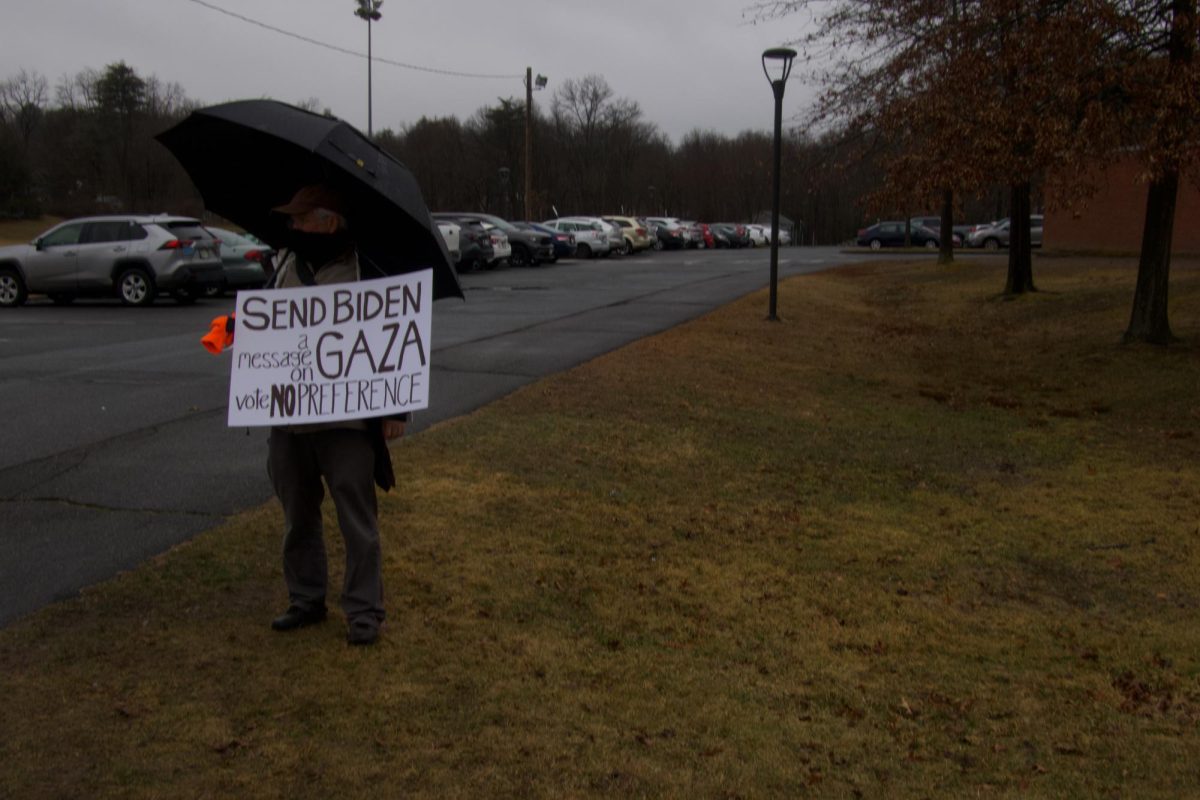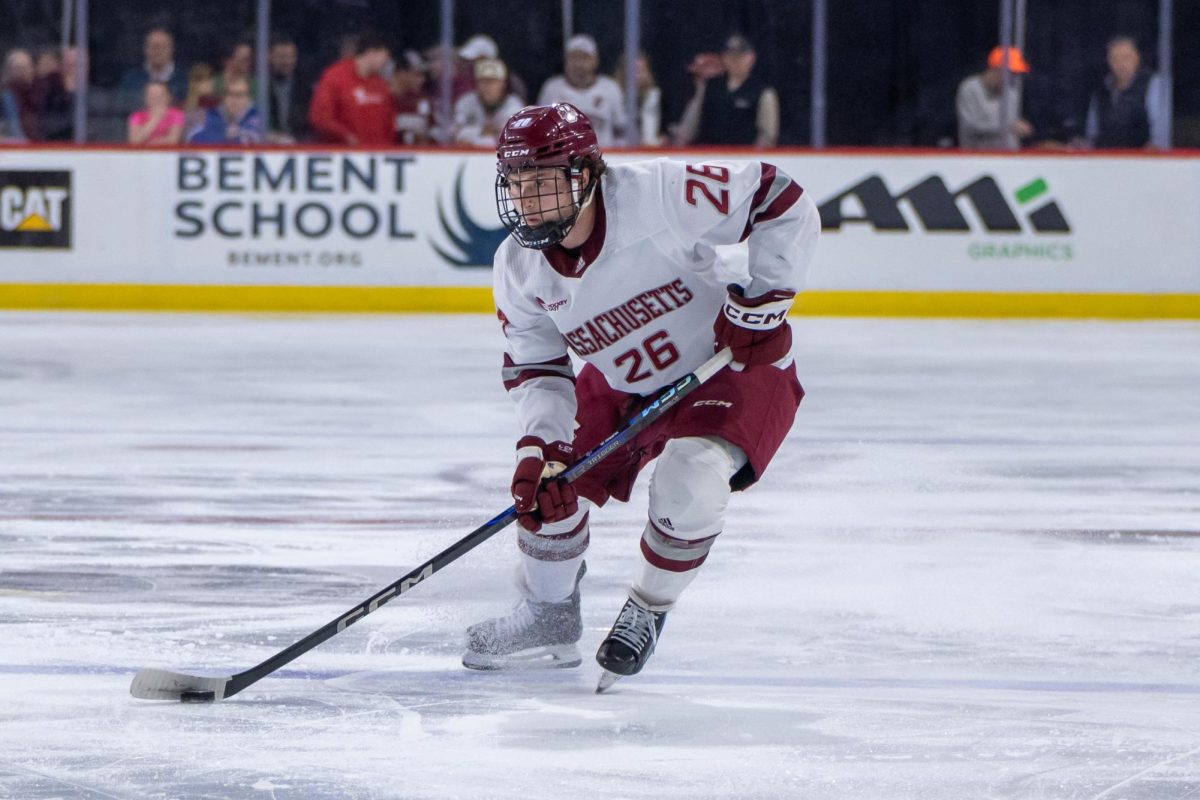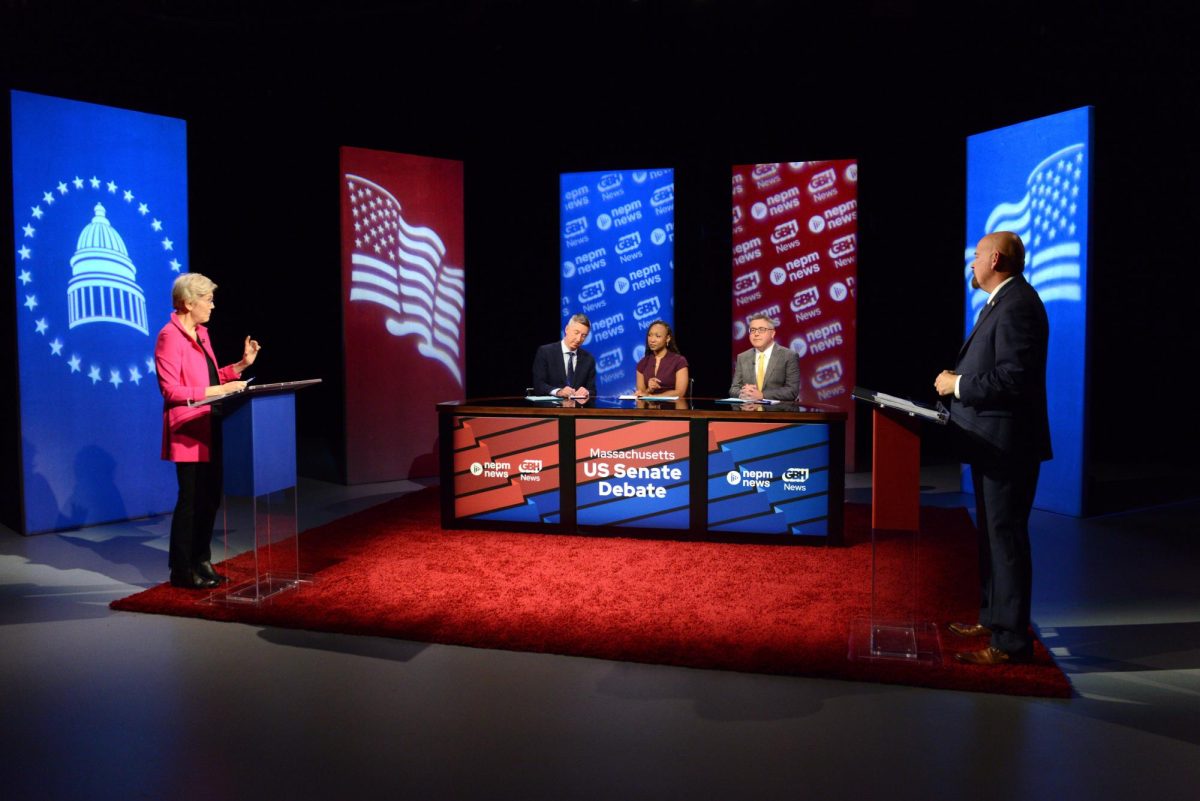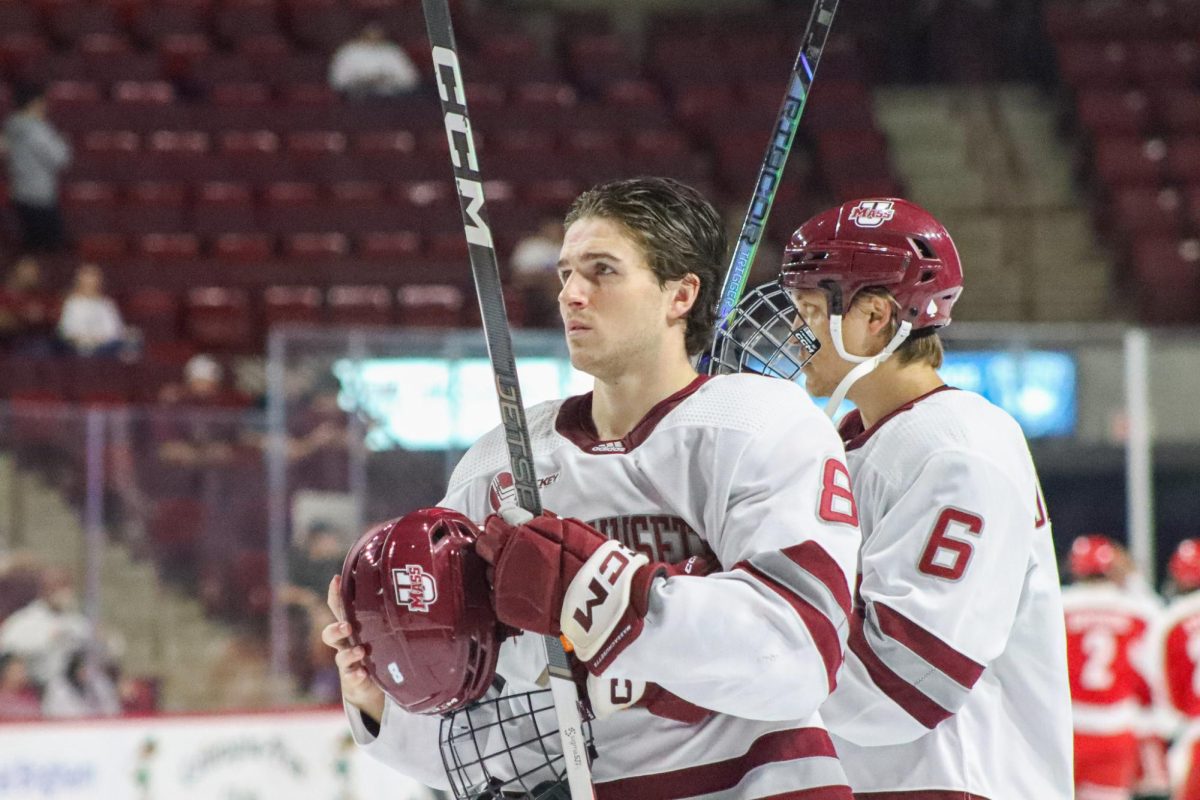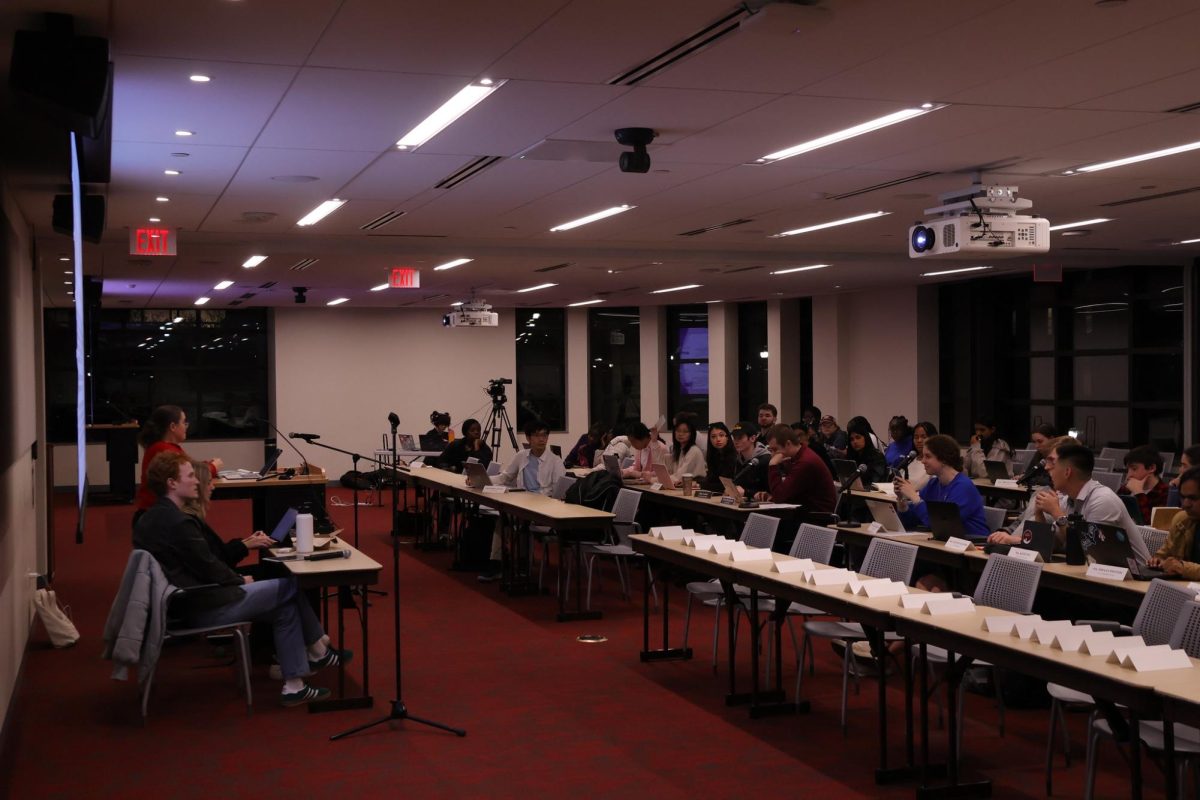President Joe Biden and former-president Donald Trump both won their respective primaries in Massachusetts last Super Tuesday. At Amherst-Pelham Regional High School that afternoon, the atmosphere was calm.
“It’s been very, very quiet here,” Constable Asa Stanley-Kemler said. In two-and-a-half hours, they said, “we’ve only had the smallest trickle of actual voters coming.” There had however, “been a huge turnout for mail in voting and early voting.”
Fran VanTreese, a poll worker “off and on since probably 1979,” noted that at least 150 people had already voted by mail-in ballot or early voting for Precinct 4-B, one of the biggest precincts in this election.
“We aren’t seeing the number of people we used to see. Those people all in the past would have had to come here,” VanTreese said. “But it’s good,” she added, “because more people are probably voting. People have to go to work. It’s not much fun to come to vote after work I’ve got to tell you. I’ve done it.”
Jo-Anne Vanin, a former dean of students at the University of Massachusetts, and Amherst poll worker for over a decade, attributed the rise of early voting to the pandemic. “I think Covid really ramped up people wanting to do that, for health reasons, protections,” Vanin said.
Warden Jim Pistrang explained that poll workers process early ballots (which have already been through the town office), ensuring they’re counted but said the lack of in-person voters “is kind of sad for us.”
Vanin added that, depending on one’s assigned precinct, “you’re seeing your friends and neighbors, you know, and so it’s nice, and that has happened a lot [Tuesday].”
Turnout can depend on precinct, VanTreese explained. “Each precinct has an equal number of eligible people to vote” based on population, but the number of actual registered voters differs. “So, the turnout’s different in a precinct that has a lot of dorm students than a residential neighborhood.”
More people, including students, register for presidential elections than for others. In 2020, almost 75 percent of UMass Amherst students voted in the presidential election. Statewide turnout and Amherst turnout in the 2020 election were 76 percent and 72 percent, respectively.
Of the job’s significance, Stanley-Kemler said “it’s necessary, personally.” “I’m here out of civic duty,” they added. The job has been especially important in the past few years, given “all the precincts got changed, so people don’t know what their exact precinct is.” Effective Dec. 31, 2021, the Town of Amherst changed its precincts in accordance with population changes from the 2020 federal census.
To clerk Vanin, working the polls is “a good community time, and I think everybody that does this does this because it’s giving to the community in a way that makes a difference. It’s important to do this, it’s important to do it right, and each of these people here come with that commitment and enjoy it.”
Voters Bernadette Jones and Millie Zweir are both longtime Amherst residents. Jones always votes, “because I feel like it’s your obligation as a citizen. If you want things to go a certain way you should be voting,” adding that “primaries are important.” In terms of choosing candidates, Jones said, “Their positions, obviously, and their character are what I go by.”
For Zweir, “I vote because I feel an obligation, but I think it’s also a privilege. I generally vote progressive, and so I’m voting for progressive candidates as much as you can.”
“It’s just hard in Massachusetts,” Jones added, “because you don’t feel you make as big an impact as in other places, because generally people [here] vote Democratically.”
Zweir agreed that “depending on where you live you know what the outcome will be.” Still, Zweir said, “you could say, ‘what’s the point,’ but I still feel it’s important to get out there and let people know what you think.”
Jones agreed, saying “You don’t want to lose that privilege.”
“Which I think is in danger, currently,” Zweir added. “Not right this minute, but for the general election.”
Amherst resident Rudy Perkins voted “no preference.” “I vote pretty regularly, and I actually voted for Biden in the last election, and I want to vote for him, but I’m really unhappy with the Gaza policy and this was a good way to let him know, just the way Michigan did it.”
When he saw a no preference campaign had been launched locally, he thought “I want to help that and vote that way.”
He hoped for “tens of thousands of no preference votes in Massachusetts, so that the message of Michigan continues, and that Biden realizes he really has to press now for a ceasefire and for an end to the siege, an end to the bombardments, and let Israel know we’re not going to fund this kind of ethnic cleansing, genocide, whatever you want to call it.”
In Amherst, ultimately 385 of 3,316 Democratic votes went to “no preference” while 2,698 went to Biden, a lower “no preference” percentage than that of Northampton. Nikki Haley won the Republican primary in Amherst, with 61 percent of the vote to Trump’s percent and 2 percent for ‘no preference’ out of about 500 Republican ballots. According to an October 2022 voter enrollment count by the Massachusetts Secretary of the Commonwealth, out of an estimated population of over 40,000, only 14,514 Amherst residents were registered to vote, of whom 7,300 were Democrat, 408 Republican and 6,639 unenrolled.
Alexandra Rowe can be reached at [email protected].

